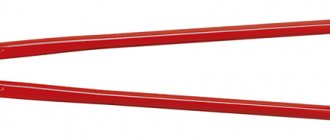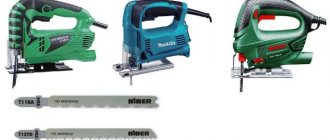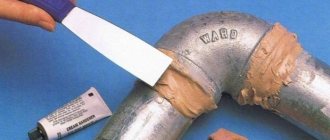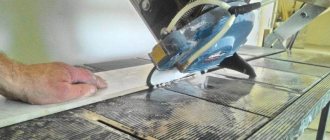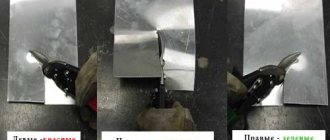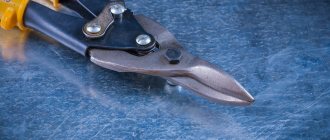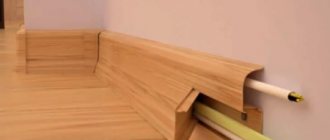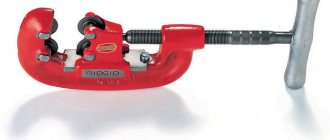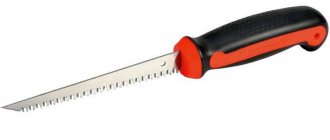The metal is used in many industries, as well as for household purposes. Special scissors are used for cutting rods, profiles, and sheets of various alloys. Knowledge of the design features and purpose of the tool allows you to select a model for a specific task.
Devices for cutting metal differ in size, shape of knives and purpose
Main classification
Metal scissors are versatile and allow you to cut products of different thicknesses. Experts divide all tools according to operating principle and design.
According to cutting features, models are divided into:
- knife;
- die-cut
According to the characteristics of the work there are:
- mechanical;
- electric.
The tools differ in the shape of the cut and its direction. There are right and left times, straight or curved (curly) shape.
Alligator
Alligator shears get their name from the hinged jaw that is used to cut metal. They are hydraulically driven. They are used for cutting long workpieces, beams, reinforcement, profiles in metalwork workshops and in production.
Alligator devices are effective, durable and robust. Disadvantages include inaccurate cutting and rough edges.
Alligator models are suitable for work in production
Tabletop
A type of scissors for cutting medium-thick metal. They do an excellent job with corner cuts, creating T-shapes, and cutting rods. Tabletop models allow you to make a smooth cut.
Guillotine
The guillotine comes with a mechanical, foot and hydraulic drive. The principle of operation is to clamp the metal with a plunger. After this, one blade moves down the fixed knife, resulting in a cut.
The guillotine allows you to quickly and efficiently cut metal. Used in mass production.
Note! The guillotine has become widespread in work where high-quality cuts are not required or parts undergo subsequent refinement.
Power
The power type is suitable for models with electric or pneumatic drive, as well as manual control. The principle of operation is to create a cut with the upper blade, which is lowered to the lower, securely fastened knife.
Power shears are suitable for cutting straight or curved lines. Their distinctive feature is high accuracy and a good smooth edge.
Snips
Snips is a device for cutting metal sheets. To work with low-carbon tin and mild steel, choose pewter models with long handles.
Compound knives are suitable for processing aluminum, stainless steel and soft alloys. They are equipped with levers that increase mechanical pressure.
Universal models are actively used to solve everyday problems
Universal
Universal devices are small in size and equipped with sharp, reliable knives.
They carry out continuous cutting and forming of sheets of different sizes. Universal scissors are used to process the corners and center of plates and cut rods of small diameter.
With lifting mechanism
Models with a lifting mechanism are used for working with thick materials. The knives are mounted on a tripod. During operation, it lowers, playing the role of a lever.
Steel units are suitable for professional high-precision work with high-strength materials.
For metal strips
Metal tape scissors have a simple design and small size. Compact dimensions allow them to be used with one or two hands. The purpose of the tool is to cut plates, rods, cables. Such models have found application at construction sites, in metalwork shops, and at home.
Specialized
Specialized models are used for highly targeted tasks. They differ in size, shape of knives, and operating principle. The main purpose is processing the edges of plates, cutting wire, cutting thick metal.
Scissors for cutting metal in repair and finishing procedures
Metal cutting is needed for a variety of repairs. Without it, it is impossible to decorate the house with metal siding on the outside and secure the frame under plasterboard from the inside. With their help, figures are cut out of tin and roofing materials on a metallized base are processed. Well-sharpened scissors can independently cut corrugated sheets with an arbitrary corrugation step - and this cutting will be more accurate than working with a hacksaw.
Hand scissors for cutting metal are easy to use with constant control over every movement of the cutting edges . A saw or jigsaw can slip off a smooth metal surface, causing injury to the worker and damage to the material. The movement of the scissors is much easier to adjust, because force is applied to every millimeter of the cut made.
In addition, saws, grinders and jigsaws require straight-line cutting, while scissors can handle smooth turns and broken lines. When it is necessary to join complex parts when laying corrugated sheets on the roof, when you need precise mating of the finishing siding panels for walls, the final cutting is done with scissors.
You have to “pay” for high precision with low productivity; the cutting speed of the most powerful scissors is several times lower than that of grinders or electric saws.
Numerous varieties of this tool allow it to be used in plumbing, carpentry and even carpentry. They can be used to cut nails or screws, cut wire, electrical cable or cord, mesh for plaster or chain-link fencing, or cut off a section of rusted sheet when partially repairing a fence or fence. In terms of the degree of “need” in a regular household, a tool for cutting sheet metal comes immediately after a hammer, saw and drill.
Classification by drive type
Types of metal scissors are divided into categories according to the type of cut, purpose, and design features. Experts distinguish between hand, hydraulic, disk and sheet metal tools.
Hand scissors
The operation of hand scissors is based on physical strength. Hand tools are made by forging. The quality of work is determined by the length of the blades and the force applied.
Manual models are light in weight and size
Lever ones are distinguished by the presence of a hinged mounting of the handle and knives. It provides additional pressure when cutting. The main disadvantage of this model is the need to attach it to a table or workbench.
Important! Manual scissors do not make nibbled cuts.
Hydraulic Products
Hydraulic models are used for cutting rods, profiles, and reinforcement. They are used in the case of dismantling metal structures, cars, and trains.
Hydraulic models are equipped with a hydraulic drive, which provides additional pressure when cutting
They are distinguished by mobility, high cut quality, operational safety and relatively low weight of the device.
Disc shears
Disc tools are often called roller tools. The cut in the unit is carried out by roller knives. They press on the product, cutting into it.
Most models are equipped with two rollers - upper and lower. The blades can be parallel, inclined or single inclined. Disc tools are characterized by fast work, clean edges, and affordable prices.
Sheet shears
Sheet shears are equipped with two cutting knives. The first is mounted on a fixed support, the second is movable. It is located perpendicular to the first. There is an adjustable gap between the knives, which allows you to adjust the knife to different parts.
Important! Sheet shears allow you to cut metal from the edge. They do not create a shaped cut or hole in the center.
Scissors are highly durable and affordable. Suitable for work in production.
Roofing shears for metal
Roofing shears have become widespread ; they are also called “chair shears”. A distinctive feature of roofing shears is the design of one of the arms. One of the handles is created not for gripping by hand, but for support on a solid surface. It can also be clamped in a vice.
Roofing shears are designed primarily for cutting sheet metal of fairly large thickness. Roofing shears can make cuts in metal 2-3 (mm) thick .
Roofing metal shears have powerful blades and a long lever . The lever is usually operated with both hands at once. But if the model has an impact handle, then you can safely hit the lever even with a hammer or a small sledgehammer.
How to choose metal scissors, main parameters and characteristics.
Features of choosing a tool
When choosing scissors, the operational parameters and purpose of the tool are taken into account.
- Knives. Chrome vanadium steel is used for durable blades. Models made of stainless and chromium-nickel steel have proven themselves well.
- Cut thickness. Scissors should be selected for specific tasks. For cutting aluminum, copper, tin, and steel, scissors with a cut of up to 0.8 mm are sufficient. Reinforced models are capable of cutting metal up to 1.5 mm.
- Handles. The handles of the tool should be non-slip and comfortable for a secure grip.
- Length. The parameter shows the total length of the tool. The longer the scissors, the more force they can apply when cutting.
When choosing a tool, the tasks and characteristics of the material are taken into account
How to choose and prices
It is difficult to say how necessary such tools are on the farm; it depends on the farm and the volume of work that has to be performed in it. If the metal work is one-time, for example, you need to make a roof from metal tiles, then it is quite possible to do it with hand-held metal cutting shears. They cost from 30 rubles to 1900 rubles.
Professional metal shears made of forged steel with alloying metals are expensive. They can cut black steel sheets up to 1 mm thick, stainless steel up to 0.5 mm thick.
Hand-held hydraulic shears are definitely useful when cutting reinforcement. You can, of course, cut the rod using a grinder, but not all sites have electricity. Then this tool will help out. They cost about 1.5-2.5 thousand rubles. In principle, it is a multi-purpose tool, so that later, during the further construction of a bathhouse or house, or landscaping of the site, there will be work for it.
Good forged scissors cost a lot, but they will last a long time
Electric scissors - mortise and slotted - can cut corrugated sheets or metal tiles quickly and without much effort. They provide a smooth edge and do not harm the paintwork. There is a wide range in prices for power tools. As usual, they are divided into household and professional. Household ones cost little, but have a short service life due to the use of cheaper materials. Approximately the prices are:
- sheet (cutting) scissors: Sturm ES9065 - cutting thickness up to 2.5 mm, price 4.7-5 thousand rubles;
- Makita - different models with different characteristics, price from 12 to 25 thousand rubles;
- Energomash NZh-90650
- Bison ZNL-500 - cut up to 2.5 mm, price 4.3-4.6 thousand rubles;
- Caliber-Master ENN-500/2.5 standard cutting thickness 2.5 mm, possibility of straight and shaped cutting, price 2.9 thousand rubles;
- SPARKY (BN 604, BN503) - cut thickness 2.5-4 mm, price 4.1-5.5 thousand rubles;
- Makita JS 1670 - cutting thickness: 0.5-2.5 mm, price 5 thousand rubles;
There are many models and manufacturers on the market, but you can imagine the price range, so it will be a little easier to navigate.
Making a product with your own hands
Buying a finished product is not always advisable. Knowing what metal cutting scissors look like, you can make them yourself. The main task is to choose a durable alloy for the blades.
Homemade models often use bearings. They are sharpened and secured to the handle. By applying pressure, the cutting head is pressed into the workpiece. Thanks to this, the material is cut.
The difference between a purchased and a manufactured model is safety, speed and efficiency. Therefore, experts recommend choosing a ready-made product.
All scissors meet quality standards. When choosing a suitable model, it is necessary to take into account not only the tasks and technical characteristics of the device, but also the rating of the manufacturers.
